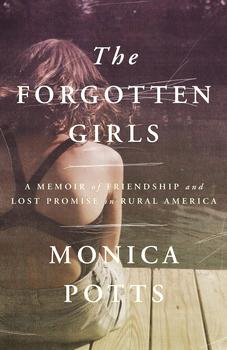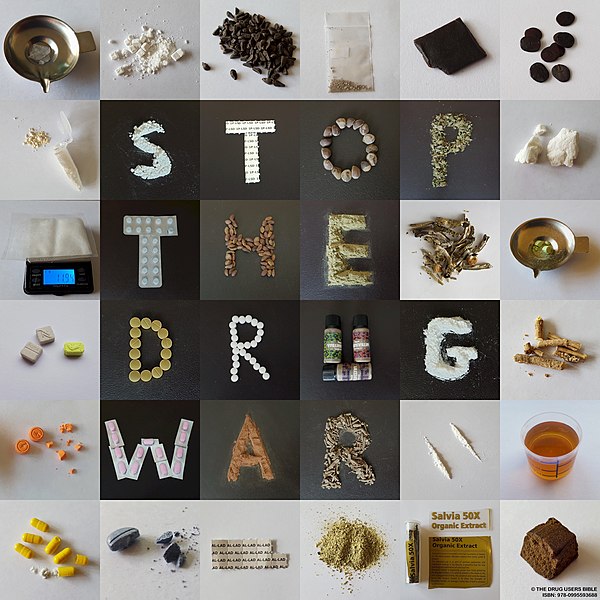Summary | Excerpt | Reviews | Beyond the Book | Read-Alikes | Genres & Themes | Author Bio

A Memoir of Friendship and Lost Promise in Rural America
by Monica PottsThis article relates to The Forgotten Girls
 In The Forgotten Girls, journalist Monica Potts revisits her declining Arkansas hometown and her childhood best friend Darci, who is locked in a struggle with drug addiction that traditional interventions—stigmatization, directing the victim to God for help—have failed to cure. While Darci's struggle involves a pattern of minor crimes, jail time, faith-based rehabs, relapses and unhealthy relationships that offer drugs and security, Potts notes that another high school friend of theirs manages to hold a job, take care of her family and generally function while taking meth daily. "I thought Darci needed a way to use and still be safe," Potts writes. "Advocates call this harm reduction: prioritizing keeping users alive rather than punishing them for their use."
In The Forgotten Girls, journalist Monica Potts revisits her declining Arkansas hometown and her childhood best friend Darci, who is locked in a struggle with drug addiction that traditional interventions—stigmatization, directing the victim to God for help—have failed to cure. While Darci's struggle involves a pattern of minor crimes, jail time, faith-based rehabs, relapses and unhealthy relationships that offer drugs and security, Potts notes that another high school friend of theirs manages to hold a job, take care of her family and generally function while taking meth daily. "I thought Darci needed a way to use and still be safe," Potts writes. "Advocates call this harm reduction: prioritizing keeping users alive rather than punishing them for their use."
According to the National Library of Medicine, "Harm reduction is a public health strategy that was developed initially for adults with substance abuse problems for whom abstinence was not feasible." The modern concept of harm reduction, or harm minimization, can be traced back to movements in the 1960s through the '80s that demanded and provided resources for oppressed people, from the Black Panther Party's Free Breakfast for Children program and health clinics to grassroots AIDS activism. Today, harm reduction encompasses not only services for drug users, such as clean needle exchanges, methadone clinics and supervised injection sites, but also sexual health education and resources, and prevention and awareness programs for youth. Harm reduction is intended to meet people "where they are" rather than hold them to unrealistic standards or demonize them.
This is a critical time to implement harm reduction. SAMHSA (the Substance Abuse and Mental Health Services Administration) reports that "[t]he U.S. is experiencing the most significant substance use and overdose epidemic it has ever faced, exacerbated by a worldwide pandemic, and driven by the proliferation of highly potent synthetic opioids containing primarily fentanyl and other analogues." Indeed, Harm Reduction International finds overdose mortality rates continuing to rise across North America and parts of Western Europe. At the same time, they note that funding for harm reduction has stagnated since 2014, and lament the "political and legal environment in most countries that continues to demonise and/or criminalise people who use drugs." A chart included in the organization's report specifies the harm reduction responses of countries across the globe.
Harm reduction approaches vary according to the needs and culture of different populations. Or at least they should. Harm reduction services globally are often more accessible to men. But in theory, according to the National Harm Reduction Coalition, the practice "recognizes that the realities of poverty, class, racism, social isolation, past trauma, sex-based discrimination, and other social inequalities affect both people's vulnerability to and capacity for effectively dealing with drug-related harm."
The results of harm reduction implementation in progressive places like Switzerland, the Netherlands and Vancouver, British Columbia suggest that it saves and improves lives. In the U.S., the Biden-Harris administration has called for a $100 million increase in funding budgeted for harm reduction. When The Forgotten Girls leaves off, Darci seems to be breaking her "cycle of despair" with the help of the legal substitution drug buprenorphine, which, like methadone, is meant to replace heroin for addicts. Though the drug has a high success rate, doctors have been required to obtain special waivers to prescribe it until recently. The pile of evidence supporting harm reduction solutions like this one seems to be rising to the point of undeniability. Hopefully, public health officials can be counted on to adapt to the obvious.
An artistic collage of 36 psychoactive drugs integrating a message of opposition to the war on drugs. Originally published in The Drug Users Bible.
By DMTrott (CC BY-SA 4.0)
Filed under Society and Politics
![]() This "beyond the book article" relates to The Forgotten Girls. It originally ran in June 2023 and has been updated for the
April 2024 paperback edition.
Go to magazine.
This "beyond the book article" relates to The Forgotten Girls. It originally ran in June 2023 and has been updated for the
April 2024 paperback edition.
Go to magazine.
Discovery consists of seeing what everybody has seen and thinking what nobody has thought.
Click Here to find out who said this, as well as discovering other famous literary quotes!
Your guide toexceptional books
BookBrowse seeks out and recommends the best in contemporary fiction and nonfiction—books that not only engage and entertain but also deepen our understanding of ourselves and the world around us.